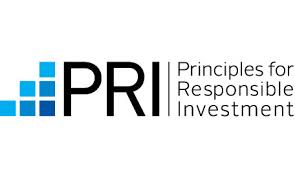Inclusive Banking, Credit, and Insurance
Description
Includes financial inclusion; financial wellness; access to banking (personal and business); access to financing (personal and business), credit, and loan guarantees; access to insurance; and recognition of informal banking systems.
Share this Subissue on:LinkedIn
Resources
Fiduciary Duty in the 21st Century
This report offers insight into the debate around whether or not fiduciary duty is a legitimate barrier to investors integrating sustainability into their investment processes. It was produced by Principles for Responsible Investing in collaboration with UNEP and the UN Global Compact. The report is based on interviews with over fifty investors, policy makers, lawyers, and regulators.
Green Inclusive Finance: A Framework for Understanding How Financial Services Can Help Low-Income and Vulnerable People Respond to Climate Change
This holistic framework created by the Center for Financial Inclusion (CFI) can help you understand how financial products and services can support vulnerable populations manage and adapt to climate change impacts. It offers banks, microfinance institutions, insurers, payment providers, and other financial service providers four impact pathways: mitigation, resilience, adaptation, and transition. For each pathway, it explains the role inclusive financial services can play and provides examples of the solutions they can offer. This resource intends to develop a shared understanding of inclusive finance’s role in adapting to climate change, and will be most useful to finance and sustainability professionals working in the financial services sector, as well as investors and funders.
Inclusive Banking: Emerging Practices to Advance the Economic Inclusion of Persons with Disabilities
This paper from the International Finance Corporation can help you to understand and present the business case for advancing the economic inclusion of persons with disabilities. It highlights the advantages and opportunities of disability-inclusive banking practices and showcases how leaders within the financial services sector are supporting the inclusion of persons with disabilities across key areas of action.
8 Billion Reasons: Inclusive Finance as a Catalyst for Climate Action
We cannot tackle poverty effectively without also tackling the climate crisis. This paper from CGAP and the World Bank can help you to understand how addressing poverty and climate action are interconnected, and how growing access to practical financial tools can build societal resilience. It explains how inclusive financial services can advance climate justice and uplift those most vulnerable to the effects of climate change and outlines priority areas for collaborative action between stakeholders and the financial services sector.
Young Women's Financial Inclusion: What Works
This guide can help you to improve the living conditions and opportunities for women in low- and middle-income countries by advancing financial inclusion. It explains how financial inclusion is an important tool for improving well-being and advancing gender equality and explores successful strategies for advancing financial inclusion. The guide specifically highlights and unpacks five key components of financial inclusion strategies: product design, product delivery, financial capability building, social intermediation, and commercial viability.
Roadmap for Inclusive Green Finance Implementation
This roadmap can help you to better understand the importance of implementing inclusive green financial (IGF) policies, as well as why and how your organisation can champion their adoption by central banks and financial regulators. Developed by the Alliance for Financial Inclusion with the University of Luxembourg, this report identifies IGF as a subset of sustainable finance, explaining that a successful IGF framework rests on six "building blocks": strategy, prioritisation, classification, ecosystem, infrastructure, and data & models. The report also highlights policy tools and challenges facing IGF policy approaches.





